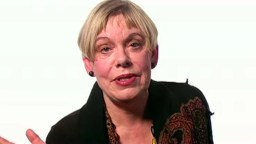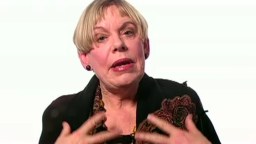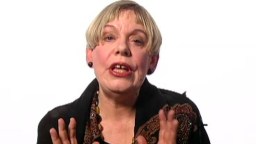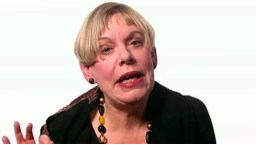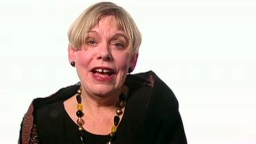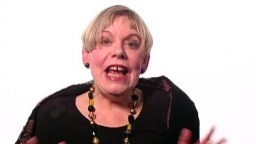Karen Armstrong
Historian of Religion
Born in England in 1944, Karen Armstrong is a TED Prize-winning scholar of comparative religion best known for her bestselling 1993 volume "A History of God." A Catholic nun from 1962 through 1969, she left the order to become a student of English literature at Oxford amidst a struggle with then-undiagnosed epilepsy, a period of her life discussed in her 2004 autobiography "The Spiral Staircase." In 2008 she called for a council of world religious leaders to draw up a "Charter for Compassion" based on the moral principles embodied in the Golden Rule. In November 2009, she unveiled the Charter in Washington, DC and online.
Historian of religion Karen Armstrong cites three models of a “good death”: one from history, one from religion, and one from her own experience as a nun.
▸
7 min
—
with
As a young scholar, “History of God” author Karen Armstrong was drawn to Tennyson, a fellow sufferer of epilepsy. But her illness did not bring her closer to God.
▸
3 min
—
with
The longstanding tension between religion and science continues to erupt in high-profile public debates. Is reconciliation possible—or desirable?
▸
3 min
—
with
All human societies have some version of the Golden Rule. What does Karen Armstrong’s “Charter for Compassion” hope to accomplish by codifying it?
▸
7 min
—
with
Passive worship and dry theological study accomplish nothing. True religion is the active “discipline” of compassion.
▸
7 min
—
with
“A History of God” author Karen Armstrong answers the biggest question of all.
▸
6 min
—
with
For Karen Armstrong, leaving her convent as a young woman wasn’t an act of rebellion. Instead, she grew estranged from her “inadequate” idea of God.
▸
4 min
—
with
The author of “A History of God” imparts the most profound lessons she has learned from the Jewish, Christian, and Muslim faiths.
▸
4 min
—
with
